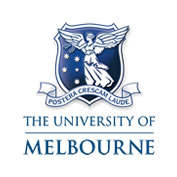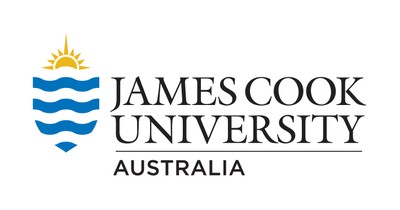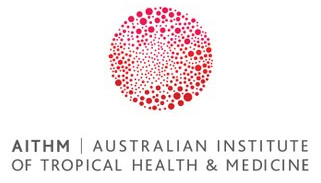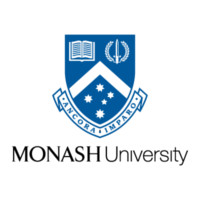National Planning for Tuberculosis Programs in Bulgaria

AuTuMN is applied in the Republic of Bulgaria to support decision-making and strategic investment planning for TB in the country. Bulgaria is in transition from Global Fund support to fully domestically funded TB services, and this modelling project aims to assist the country in the transition planning.
AuTuMN projects the TB epidemic trajectory under various epidemiological and financial scenarios, assesses the ability of current programs to reach sustainable development goals and country-specific goals, and provides estimates of how best to allocate resources across different TB control activities to maximise health outcomes.
The results of the analysis have helped policy makers and the NTP of Bulgaria to design tailored strategic plans that will improve the efficiency of TB programs and are optimal in reducing TB burden in the country. In collaboration with the NTP, AuTuMN recently conducted a workshop in Sofia, Bulgaria, 26 June 2017, to present the results of the analysis to policy makers and stakeholders (see picture).
A user-friendly interface to assist local decision making in the fight against drug-resistant TB

Our recent exploration of the different pathways leading to drug-resistant TB at retreatment (Ragonnet et al., BMC ID, Jan 2017) provided valuable insights for TB policy-makers. This study presented quantitative estimates for the contribution made by these pathways in the different WHO regions and in many countries. It highlighted the need for contextualised solutions in the fight against drug-resistant TB.
We have now created a user-friendly web-based interface based on the model described in the previous manuscript. This new tool can be used by people without technical knowledge and can be applied to any specific settings.
The interface is publicly available here and was introduced in a correpsondence paper recently published in BMC Infectious Diseases.
Exploration of the Global post-2015 TB Targets: Multi-modelling exercise

AuTuMN was one of eleven leading international modelling groups involved in a collaboration to simulate whether the post-2015 End TB Targets are achievable in India, China and South Africa. This collaboration was coordinated by TB-MAC and the London School of Hygiene and Tropical Medicine.
AuTuMN was one of only three models to contribute both epidemiological and economic results for all three countries. The results of the collaboration were presented at the Union World Conference on Lung Health in December 2015.
This project produced two papers, which were recently published together in the Lancet Global Health.
Modelling to assist TB-control in Western Province, Papua New Guinea

Following an epidemiological assessment conducted in Western Province by Prof. Emma McBryde in 2012, five scenarios representing alternative programmatic responses over 10 years were developed with local staff. We used the AuTuMN transmission dynamic model to compare the impact of these different scenarios on TB burden. The economic costs induced by TB were also considered as an outcome in our analysis.
We demonstrated that continuation of the existing strategic plan would lead to a proportion of MDR-TB among incident cases that would increase dramatically and that programmatic management of MDR-TB is therefore urgently needed.
Modelling short-course regimen for MDR-TB treatment in Uzbekistan

In collaboration with Medecins sans Frontieres, the WHO and the National TB Program of Uzbekistan, AuTuMN has simulated changing from the standard WHO regimen to a standardised short-course regimen for treatment of MDR-TB patients.
Short-course regimens are currently under investigation as a way to achieve better control of MDR-TB in a range of settings. Our modelling work considers the likely epidemiological impact of changing to a short-course approach in Karakalpakstan, western Uzbekistan. The work is now nearing completion and will be submitted for publication soon.
National Planning for Tuberculosis Programs in Philippines

AuTuMN provides modelling support to the Philippines to inform TB policy decision-making. The analysis is performed with the support from the Global Fund through the Special Initiative on Optimizing Value for Money and Financial Sustainability (SI-VFM). This project is aimed to provide epidemiological projections of TB epidemics in the Philippines, the impact of interventions in TB epidemics, and to suggest best use of resources to maximise health outcomes. The results from this modelling exercise will support better TB planning and prioritisation under the context of ensuring the efficiency and sustainability of national TB prevention and control efforts. This is particularly important given the high probability of donor funding reduction in the near future.
National Planning for Tuberculosis Programs in Mongolia

The AuTuMN team visited Mongolia in July 2019 and met with members of the Global Fund and the National Centre for Communicable Diseases to assist in the strategic planning and investment of tuberculosis control in the country.
Mongolia has already performed several large-scale surveys including a recent tuberculosis prevalence survey, drug susceptibility survey and a study on catastrophic costs incurred by tuberculosis patients. These studies provide invaluable data which can be used in the AuTuMN model to predict the tuberculosis epidemic trajectory under various scenarios. This information can be used to optimise resource allocation across different tuberculosis control activities to achieve national tuberculosis elimination goals. A follow-up meeting in September 2019 will be held to present the findings from the modelling analysis.
National Planning for Tuberculosis Programs in Fiji

AuTuMN is providing analytical support to inform the national TB program in Fiji. Our objective is to determine the optimal distribution of strategic resources in order to maximise the impact of TB-control interventions with the available funding.
Fiji is in transition from a funding supported by the Global Fund and a funding that will be provided exclusively by the National Strategic Plans. Therefore, this resource allocation exercise is needed to insure the continuation of the incidence decline that has been observed over the last decades.
COVID-19 Modelling

The AuTuMN team, like many modelling groups, have been seconded to work on COVID-19 modelling in 2020. We have developed models of COVID transmission and mitigation for Australia, Malaysia and The Philippines, as well as regional and global travel models.
https://www.aithm.jcu.edu.au/research/research-projects-and-groups/covid-19/
Or next phase of research is to combine our interests in TB control and COVID-19 to examine the impact of COVID-19 on Tuberculosis transmission. COVID-19 has been a disruptive event to the whole world and has been particularly consuming for public health practitioners, leaching funding from contact tracing and active case finding, health promotion and even treatment of other serious and ubiquitous diseases such as tuberculosis, HIV and malaria. Such impact may make the END TB targets even harder to attain. We will examine the likely impact of COVID-19 on tuberculosis in regional countries based on emerging data on the impact of the disruption on TB programs.





